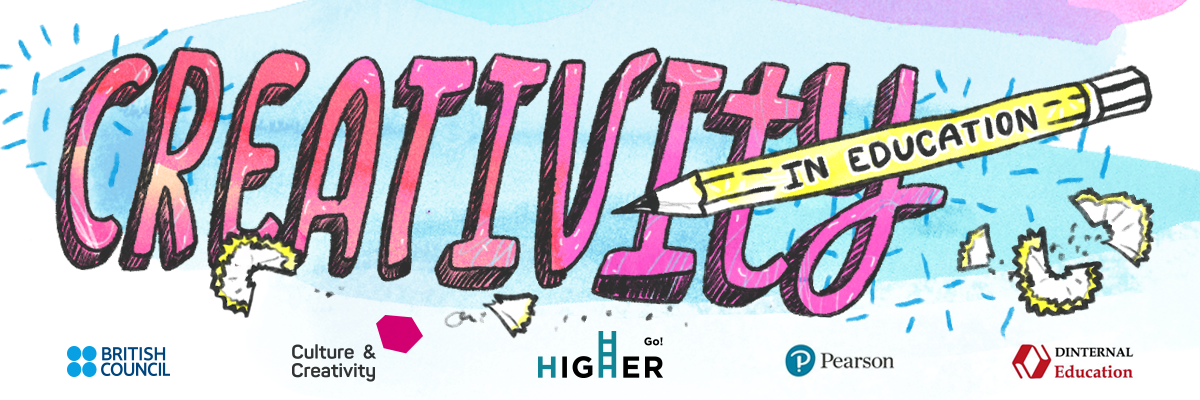
How to be a creative language learner
Let's get this straight: there is no magic pill for learning a language. If Malcolm Gladwell's 10,000 hours theory holds any merit for you, you'll know that achieving any kind of proficiency in a new language requires months and even years of hard work.
That said, can't creative approaches become a short cut? Well, you still need to clock in a lot of hours of practice. However, you can save some time if you find a method that works particularly well for you and helps you learn better and faster. At the very least, you can make this slog much more bearable!
So, here is a selection of tried-and-true creative approaches to language learning that you can try either on your own, with a friend or with a teacher. Feel free to experiment and let us know which have worked for you.
1. Draw and doodle
Do you often doodle or draw pictures when you learn? You should, because drawing has a lot of benefits for learning: it improves memory retention, helps achieve deeper understanding of concepts and generally orders our thinking processes. So, next time you find a difficult word to remember, try illustrating it on a paper card or in your notebook, and then come back to it in a week. You might be surprised!
2. Take longhand notes
If you are not a fan of drawing, at least give yourself an opportunity to write by hand. Research shows that taking notes by hand (so-called “longhand note-taking”) results in much better learning than typing on your keyboard. It happens because writing generally takes longer and requires us to adapt and rearrange the information, which creates a ‘desirable difficulty’ and results in better remembering. Make vocabulary and grammar notes, draw concept maps of a book you’ve read, and you will save yourselves a lot of revision time.
3. Experiment with web apps
Don’t limit yourselves to traditional learning methods. There are things that only the Internet can do: for example, use the tool called Youglish to check the pronunciation of new words and find new contexts for their use in YouTube videos. The search works incredibly fast: if you enter a word like ‘privacy’, you get more than 6 thousand hits and can watch clips one by one and see how this or that speaker says it. There are also subs, which show conveniently large on the screen, and pronunciation tips if you scroll down. My suggestion: try a new web app or learning software for a week before you decide if it’s useful for you.
4. Welcome serendipity on your learning path
Be open to new opportunities for learning and trying out something new; be ready for new discoveries. You need to decide what this means for you: maybe one day you decide to watch a TV show that has never excited your interest, and suddenly realised that it’s a great way to improve your listening skills; perhaps a book by an unknown author will give the best explanations of grammar rules you’ve ever seen. And don’t forget about speaking clubs and other opportunities to meet random interesting people and talk to them in a new language!
5. Celebrate your success with small wins
Wherever your learning journey takes you, it’s a good idea to notice milestones and celebrate achievements, even small ones. This will give you a sense of progress and motivate you when the going gets tough. Plan to learn a little every day, cross each successful day off the calendar, and congratulate yourselves with a prize for completing every month without breaks.
And remember: we only learn by doing, not just by reading advice about learning. The time to start is now!
References:
-
Gladwell, Malcolm. The Outliers. 2008. Little, Brown and Company.
-
Quito, Anne. Drawing Is The Best Way To Learn, Even If You’re No Leonardo Da Vinci. September 15, 2018. Quartzy.
-
Kuepper-Tetzel, Carolina. The Benefits of Longhand Notetaking Versus Slide Annotations. May 31, 2018. The Learning Scientists.
-
Dabrowska, Anna. Serendipity In Learning: Is Planning For Everything Ideal For Learners? April 25, 2015. informED.
-
Glei, Jocelyn K. How to feel progress.
Author’s bio:
Katherine Martinkevich is an academic manager at the British Council Ukraine. She has been teaching English for more than 22 years, and training and supporting other teachers for at least half of that time. She has spoken at multiple international conferences in the UK and Ukraine and at the Teacher Skills Forum in Jordan; her interests include Academic English, exam preparation, soft skills and educational psychology. She blogs about English language teaching, learning and managing at Kate’s ELT Crate and is currently doing her second MA with the Norwich Institute for Language Education. 





